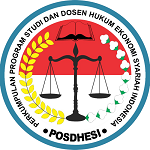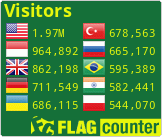Community Economic Empowerment Through Infaq and Shadaqah in LAZISMU Cirebon Regency Sharia Economic Law Perspective
DOI:
https://doi.org/10.32332/muamalah.v2i2.7844Keywords:
Economic Empowerment, Infaq and Shadaqah, Sharia Economic Law.Abstract
This study examines the role of infaq and sadaqah in community economic empowerment, specifically focusing on how these practices contribute to the economic welfare of individuals, particularly those with disabilities. Infaq refers to the management or distribution of assets to fulfill needs that are pleasing to Allah SWT, while sadaqah involves the voluntary donation of assets or non-assets, beyond zakat, for the benefit of society. The research employs a qualitative approach utilizing a phenomenological method, with data collection through observation, interviews, and documentation. The findings indicate that the economic empowerment of communities through infaq and sadaqah is achieved by supporting Micro, Small, and Medium Enterprises (MSMEs) owned by individuals with disabilities, whether these businesses are established or non-existent. The economic impact of this initiative is significant, as it provides financial assistance to vulnerable groups. A review of Shariah economic law confirms that community economic empowerment through infaq and sadaqah aligns with Islamic principles, including the principles of monotheism, justice, honesty, truth, public interest (al-maslahah), and goodness, all of which are in harmony with the tenets of Shariah economic law.
Downloads
References
Downloads
Published
Issue
Section
License
Copyright (c) 2023 Umdah Aulia Rohmah

This work is licensed under a Creative Commons Attribution-ShareAlike 4.0 International License.
All articles in the Mu'amalah: Jurnal Hukum Ekonomi Syariah can be disseminated on condition that they still include the identity of the article and the source (Mu'amalah). The publisher is not responsible for the contents of the article. The content of the article is the sole responsibility of the author.
Authors who publish this subject agree to the following terms:
First, the Authors retain copyright and grant the journal rights from the first publication with the work simultaneously licensed under a Creative Commons Attribution-ShareAlike 4.0 International License that allows others to share the work with an acknowledgement of the work's authorship and initial publication in this journal.
Secondly, the authors can enter into a separate or an acknowledgement of its initial (e.g., post-institutional repository or publish it in a book) publication in this journal.
![]()
Third, the authors are permitted and encouraged to post their work online (e.g., in institutional repositories or on their website) before publishing work is cited.








